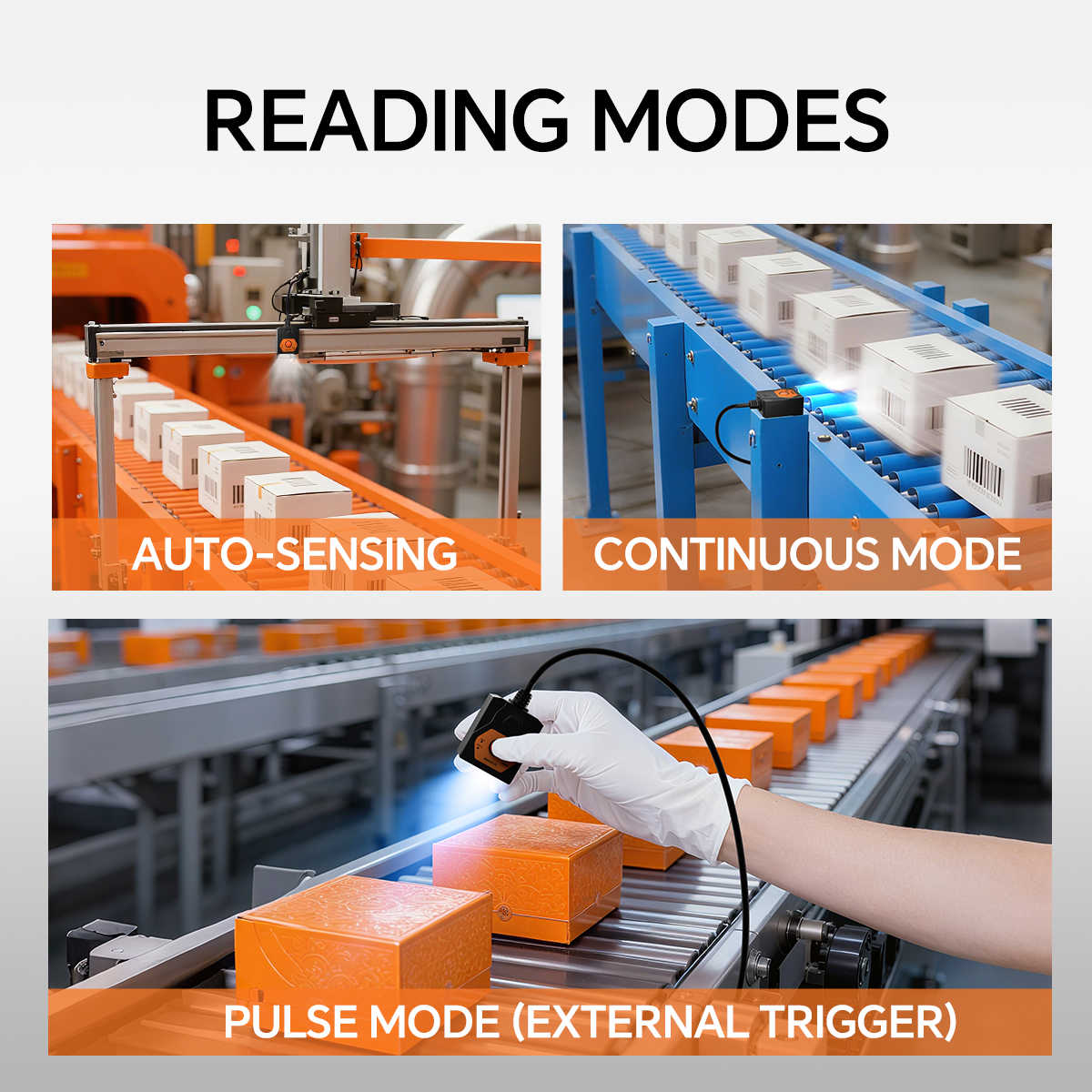In today’s fast-paced industrial and commercial environments, efficient data collection is the cornerstone of smooth operations, and a reliable fixed mount barcode scanner has become an indispensable tool. Whether you’re managing a busy warehouse, an automated production line, or a retail checkout system, selecting the right device can significantly improve workflow efficiency, reduce errors, and cut operational costs. But with a wide range of options available, how do you make the best choice? Let’s break down the key factors to consider when choosing a fixed mount barcode scanner that aligns with your needs.
First, clarify your scanning requirements, especially regarding the type of codes you need to read. If your business involves fixed qr code scanning—such as in product tracing, electronic ticketing, or mobile payment verification—ensure the fixed mount barcode scanner you select supports 2D code reading. Unlike traditional 1D scanners, 2D-enabled models can decode complex data from QR codes, including text, URLs, and images, making them versatile for modern applications. For industries that primarily use linear barcodes (like UPC or Code 39), a fixed-mount laser barcode scanner might be a cost-effective and high-speed solution. Laser scanners excel at reading high-contrast, printed barcodes from a distance, offering quick response times ideal for high-volume scanning scenarios.
Next, consider the operating environment, as this directly impacts the scanner’s performance and durability. If you need a device for manufacturing plants, warehouses, or outdoor loading docks, an industrial fixed mounted barcode scanner is a must. These ruggedized scanners are designed to withstand harsh conditions such as dust, moisture, extreme temperatures, and vibrations. Look for models with high IP (Ingress Protection) ratings to ensure they can operate reliably in challenging environments without frequent breakdowns. In contrast, for office or retail settings with stable conditions, a standard fixed mount barcode scanner may suffice, but it’s still important to check for resistance to minor bumps or spills.
Scanning distance and angle flexibility are also critical factors. Evaluate the distance between the scanner and the barcodes in your setup. Some fixed mount barcode scanners are optimized for short-range scanning (a few centimeters), while others can read codes from several meters away. Additionally, consider the scanning angle—does the scanner need to read codes at multiple orientations, or will they always be presented straight on? A scanner with a wide scanning angle or omnidirectional reading capability can adapt to varying barcode positions, reducing the need for precise alignment and improving operational flexibility.
Integration and compatibility should not be overlooked. Your fixed mount barcode scanner needs to work seamlessly with your existing systems, such as inventory management software, ERP systems, or production line controllers. Check if the scanner supports common communication protocols (e.g., USB, Ethernet, RS-232) and if it’s compatible with your operating system (Windows, Linux, etc.). Some advanced models also offer easy integration with IoT platforms, allowing for real-time data sharing and remote monitoring—an invaluable feature for businesses aiming to streamline their digital transformation.
Finally, consider total cost of ownership (TCO) beyond the initial purchase price. This includes maintenance costs, replacement parts, energy consumption, and downtime losses. A high-quality industrial fixed mounted barcode scanner may have a higher upfront cost but can offer longer service life, lower maintenance needs, and better performance, resulting in lower TCO over time. Look for manufacturers that provide reliable customer support, warranty coverage, and easy access to spare parts to minimize disruptions to your operations.
In summary, choosing the right fixed mount barcode scanner requires a clear understanding of your scanning needs, operating environment, integration requirements, and budget. Whether you need a fixed-mount laser barcode scanner for fast linear barcode reading or a versatile model for fixed qr code and 2D scanning, prioritizing factors like durability, compatibility, and performance will help you select a device that drives efficiency and productivity for your business. For businesses seeking a balanced solution that meets multiple needs—from industrial durability to 2D code support—the NETUM NT430 fixed mount barcode scanner stands out: it handles both linear barcodes and fixed qr code scanning, boasts a rugged design suitable for light industrial use, and supports common communication protocols for easy integration with existing systems. Invest time in researching reputable brands like NETUM, reading user reviews, and consulting with industry experts to make an informed decision that meets your long-term operational goals.


